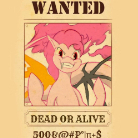How To Write An Emotional Scene?
-
Similar Content
-
- 58 replies
- 8,801 views
-
- 78 replies
- 4,828 views
-
Starlight Glimmer - How NOT to write a character 1 2 3
By Ring Team,
- my little pony
- my little pony: friendship is magic
- (and 1 more)
- 58 replies
- 5,428 views
-
general How well do you think you can write or draw? 1 2
By Gaines,
- 38 replies
- 1,225 views
-
- 0 comments
- 134 views
-
-
Recently Browsing 0 members
- No registered users viewing this page.



.thumb.png.83e037ba7e453fda3377d3d6caa2743d.png)



Recommended Posts
Create an account or sign in to comment
You need to be a member in order to leave a comment
Create an account
Sign up for a new account in our community. It's easy!
Join the herd!Sign in
Already have an account? Sign in here.
Sign In Now